
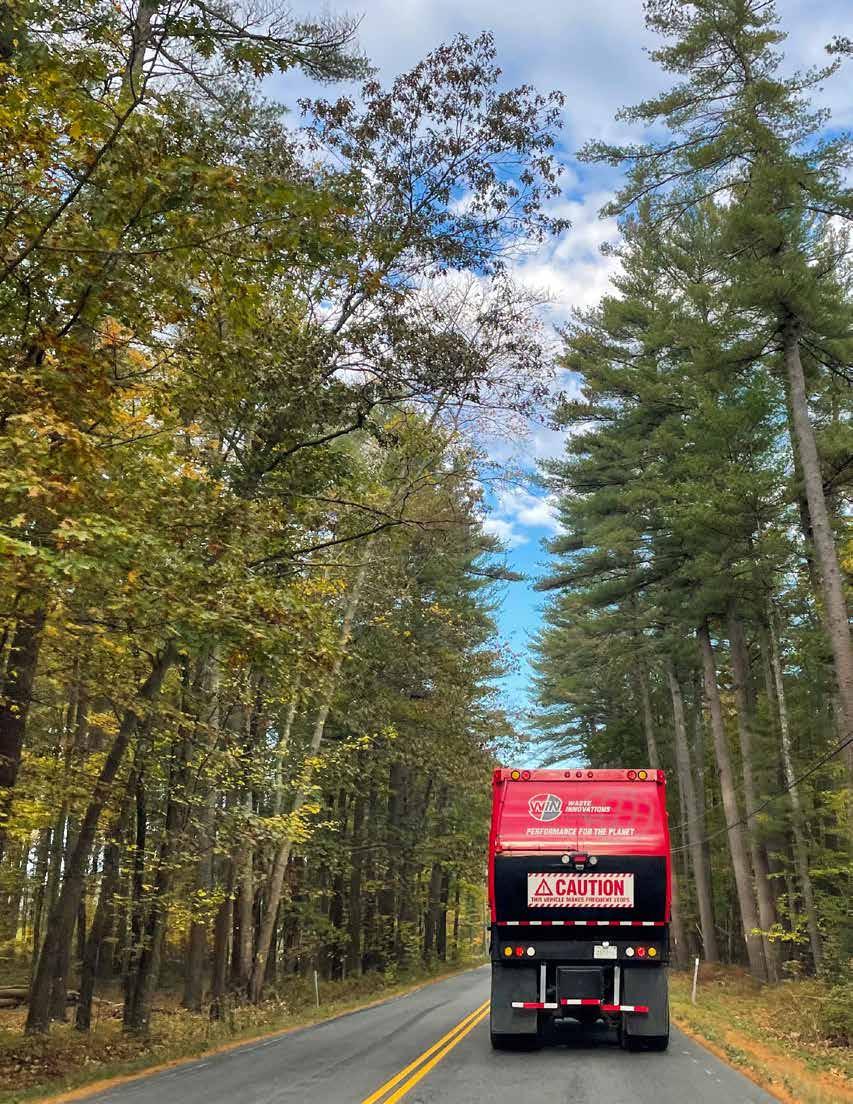



We are excited to bring you this inaugural WIN Waste Innovations sustainability report. We are proud of the role we play in building a more sustainable future and believe in being transparent about our approach and performance. This first report lays the foundation; as we continue to build our roadmap for the future, this report will become more comprehensive and aligned with the Global Reporting Initiative (GRI) Standards.
Unless otherwise noted, all performance data within reflects our operations for the fiscal year beginning January 1, 2022, and ending December 31, 2022.



Sustainability is in our company’s DNA. It’s what inspired us to make our waste collection and handling services as efficient and circular as possible, and it is what drives us today to be the most sustainable waste and recycling services provider in the nation.
Our commitment to sustainability is more important today than it ever has been. We are working hard to deliver ever more sustainable waste handling services — solutions that will recover and preserve natural resources, divert waste from landfills, and reduce greenhouse gases. Every company and individual must do everything possible to become more sustainable, and we are proud to partner with more than 150,000 customers who are doing just that by seeking a sustainable approach to one of their most essential needs.
Being a sustainable company means that in every moment we must consider how our operations impact natural resources, biodiversity and habitats, climate, people, economies, and communities — and ensure they have a net positive impact on each. This inaugural report shows our sustainability efforts and achievements during the year 2022, and it offers a look at what we’re doing today to make an even greater impact in the near and distant future.
The demand for the essential services we provide is increasing, while landfills are rapidly filling and the need to reduce greenhouse gas emissions grows more pressing. Our work contributes to the transition to a more circular economic model, which is urgently needed to avoid environmental and social impacts. We are proud to be a major driver in this transition.
Sincerely,

Allia Saydjari Senior Director of Sustainability

“ Being a sustainable company means operating in a way that meets our own needs without compromising the ability of future generations to meet their own needs.”


WIN Waste Innovations brings sustainable waste handling services to customers and renewable energy to the electric grid, providing an essential service while helping create a greener, healthier planet.
Asset Map
WtE Facilities (Disposal/Energy) (14)
Ash Monofills (4)
Landfills (3)
Transfer Stations (20)
Material Recovery Facility (2)
Hauling Locations (10)


To us, sustainability means responsibility. We aim to ensure we are operating our business in a way that meets our world’s needs today without compromising the ability to meet our world’s needs in the future. We think about sustainability holistically, and we embed sustainability into every sphere of our influence — our operations, communities, environments, and our work with stakeholders and employees, considering all of the many dimensions of society and environment needed for a successful tomorrow.
IN OUR OPERATIONS
• Recycling and Resource Recovery
• Renewable Energy Generation
• Sustainable Waste Treatment and Disposal
• Resource Effciency
IN OUR COMMUNITIES
• Community Engagement
• Providing Essential Services
• Community Gardens & Cleanups
• Volunteer & Education Programs
IN OUR ENVIRONMENTS
• Environmental Compliance
• Environmental Conservation
• Habitat Restoration
• Wildlife Sanctuaries
• Pollination Programs
We acknowledge that the rolling equipment used in our operations (i.e., trucks, trailers, rail) and facilities (material recycling facilities, transfer stations, landfills, waste-to-energy facilities, headquarters) use resources such as gasoline, diesel, and electricity, which result in greenhouse gas emissions and air pollution. WIN Waste aims to incorporate sustainability considerations when buying new equipment to improve on energy efficiency, demand for natural resources, and safety.
WIN Waste is committed to conducting its business in a responsible and ethical way and in full compliance with all applicable federal, state, and local laws, rules, and regulations.
This sustainability commitment incorporates the core principle of continuous improvement. WIN seeks to identify, assess, and manage compliance with changing regulatory requirements and incorporate associated changes in its policies and procedures.
• Customer Satisfaction
• Supply Chain Management
• Shareholder Engagement
• Government Relationships
• Health & Safety
• Diversity, Equity & Inclusion
• Employee Engagement
• Training & Development
• Employee Resource Groups

Performance for the planet — many promise it, WIN Waste practices it. We are proud to convert waste into renewable energy that goes back to the communities we serve. Through safe and responsible waste disposal and renewable energy production that powers homes and communities, WIN Waste strives to be an environmental leader that makes a difference in the lives of those around us.
WIN Waste is committed to the following core sustainability objectives related to environmental, social, and governance (ESG) principles:
• Provide a safe and secure workplace for employees.
• Minimize our operational impact on the environment.
• Reduce energy usage and the consumption of natural resources and other materials.
• Secure long-term value through comprehensive sustainability governance.

We cannot be the best in our business without a best-in-class team. WIN Waste recognizes that diverse perspectives make our company more innovative and resilient. That is why we are striving to be the most diverse, equitable, and inclusive workplace in our industry.
In order to succeed as a company and to meet the goal of being an innovative company, we have to have different perspectives.

Our waste management process begins and ends at the curbside. We collect our customers’ trash, process it and convert it into renewable energy at our facilities, then we return it back to the communities we serve in the form of electricity. Here’s how it works.
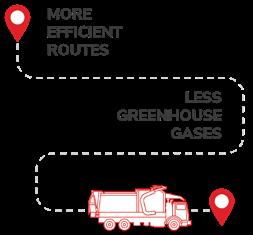
Step 1: Collect Waste
We use advanced analytics and logistics software to map our trash collection routes so they are as efficient as possible.

Step 3: Convert
After recycling, we convert most of the remaining trash into renewable energy that we send onto the electric grid, powering homes across the Northeast and beyond.
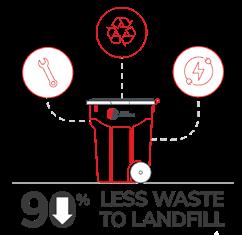
Step 2: Recover and recycle
We recover recyclable materials from the waste we collect so they can be made into new products, thus reducing the need for more extraction of limited natural resources.
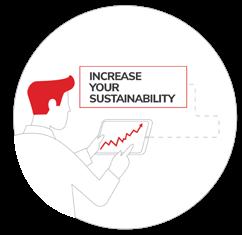
Step 4: Measure
We measure every pound of trash collected and every megawatt of power generated — as well as many other sustainability indicators — and we share the data with customers so they can see their positive impact.
We manage customers’ waste in a safe and efficient manner that protects human health and the environment. Our services focus on recovering renewable attributes from the waste stream and sustainable end-of-life waste management, supporting the U.S. Environmental Protection Agency’s (EPA) sustainable material management strategy.
• Sustainable Waste Management
• Supporting the U.S. EPA’s Sustainable Materials Management Strategy
• Greenhouse Gas Emission Reduction
• Reducing emissions throughout the entire lifecycle of waste
• Resource Recovery
• Recovering commodities from the waste stream for reuse and recycling
• Renewable Energy Generation
• Recovering energy from waste at our renewables facilities and landfills
• Fossil Fuel Avoidance
• Reducing dependence on fossil fuels through recycling and energy recovery
• Sustainable Transportation
• Using the most fuel efficient and least carbon intensive modes of transportation
The most important waste management approach in our journey toward zero waste is source reduction and waste prevention. This means sourcing products that are manufactured and consumed in a way that prevents waste from being generated in the first place, and, once waste has been generated, recycling the maximum amount from the waste stream. At our facilities, WIN Waste recovers and recycles construction and demolition materials; comingled recyclables from municipal solid waste; and microscopic metals that we recover through advanced processing. The commodities and valuable natural resources we sort and recover from the waste streams we handle are sent to manufacturers who turn them into new products. This circular process reduces consumption of new raw materials.
ANNUAL AVERAGE
6.4M+
TONS OF WASTE CONVERTED INTO RENEWABLE ENERGY
340K+
HOMES POWERED WITH RENEWABLE ENERGY
Source: WIN Waste Innovations
4M+
TONS DELIVERED BY LOW-CARBON RAIL
354K+
TONS OF PAPER, PLASTIC AND METALS RECYCLED
133K+
TONS OF METAL RECOVERED
136K+ COLLECTIONS CUSTOMERS
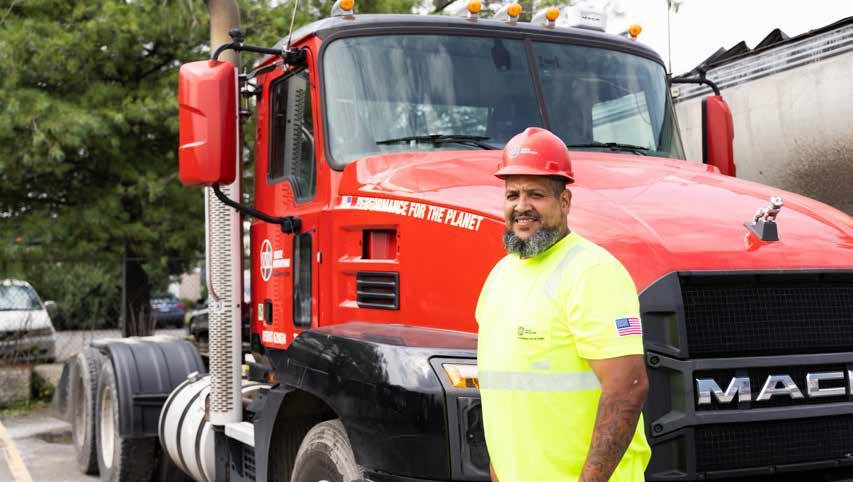

The densely populated northeastern region of the United States generates more waste than it has the capacity to dispose of. This makes the Northeast states net exporters of waste. Each year, tractor trailers haul the states’ waste hundreds of miles to the nearest available disposal sites, taxing highway infrastructures and adding to traffic congestion, greenhouse gas emissions, and air pollution.
This crisis is expected to worsen as waste generation increases and landfills in the region reach capacity.
WIN Waste is proud to be part of the solution to this problem by offering local disposal and renewables facilities that are designed to divert waste from landfills. Collectively, WIN Waste Innovations prevents 6.4 million tons of waste from going to landfills each year.
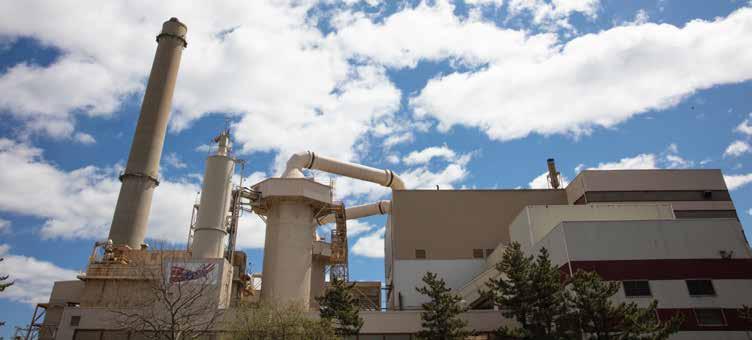
A circular economy employs industrial processes and economic activities that are restorative or regenerative by design and that enable resources used to maintain their highest value for as long as possible. In a circular economy, waste is dramatically reduced through the superior design of materials, products, and systems.
WIN Waste’s ability to optimize waste flows, maximize resource recovery, produce waste-derived renewable energy, and build decentralized, closed-loop customer partnerships are just some of the ways our company is helping drive the transition to a more circular global economy.
Steam is a natural byproduct of the waste conversion process at WIN Waste Innovations’ renewables facility in Westchester, New York.
In a unique partnership, WIN Waste gives this steam to nearby neighbor White Plains Linen Company, which is the largest commercial laundry operation in the United States. White Plains Linen uses the steam to power its operations. In doing so, the company reduces its use of natural gas, which prevents about 5,000 metric tons of greenhouse gas emissions annually.
The partnership offsets the equivalent of:
• 615,000 barrels of oil
• 43 million cubic feet of natural gas required to generate net megawatt hours
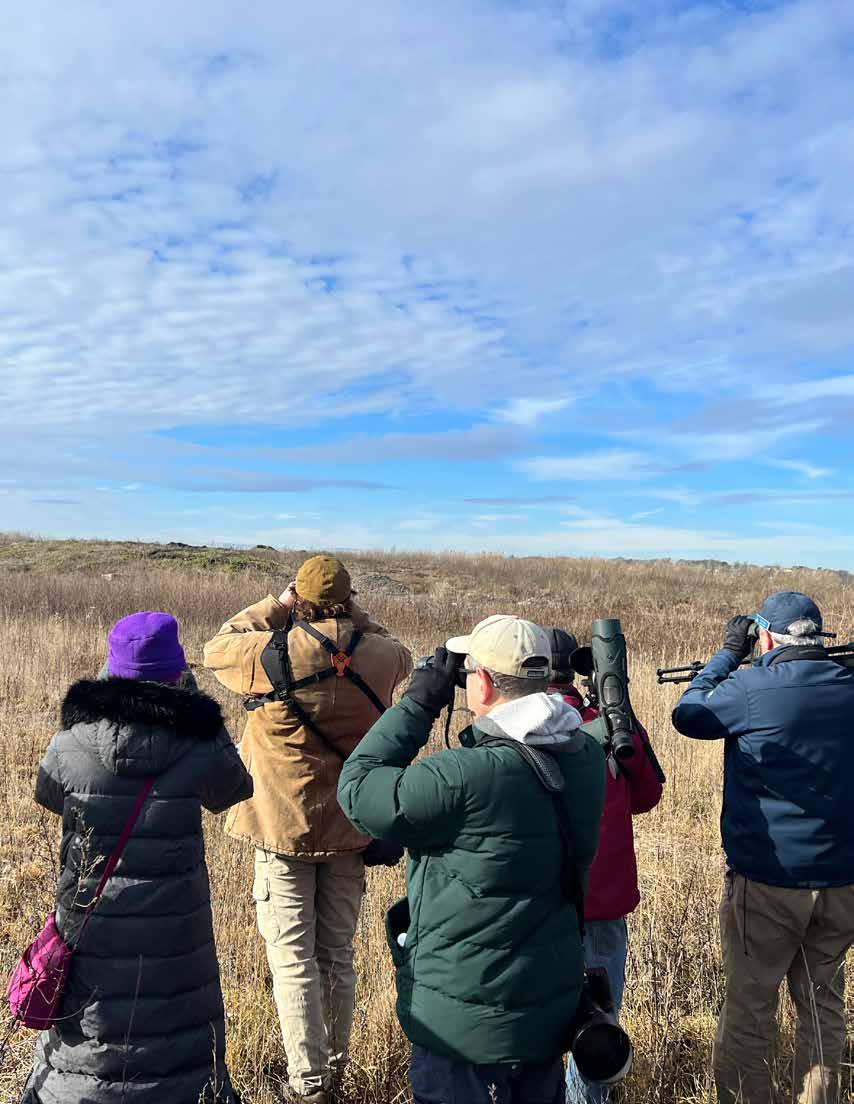
Birdwatchers flock to our award-winning Bear
in

Massachusetts, to spot migratory species passing through
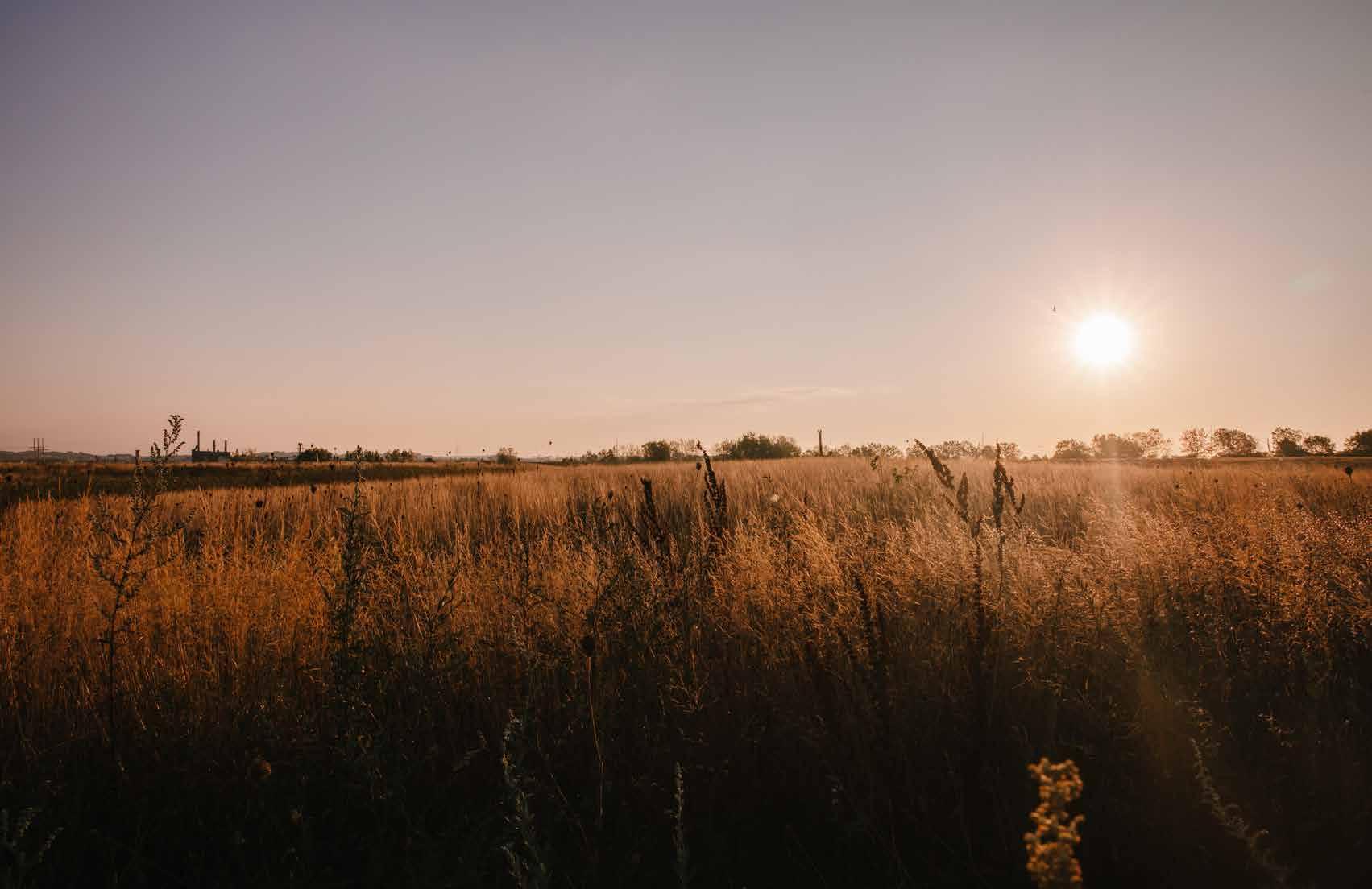

Despite great work to increase recycling rates, the world is making more waste than ever before. Today, humans generate 82% more waste per person than we did in 1960.* Increases in overall waste generation are outpacing recycling participation rates, with no signs of slowing.
The waste management industry plays a critical role in the sustainability of our world. We recognize our role as an essential partner to the environment, and we strive to be a leader in environmental services. By recycling and recovering precious resources from the waste our communities generate, we can reduce overall consumption of limited natural resources. WIN Waste strives to recover as many resources as possible, and we provide sustainable end-of-life waste management, including renewable energy, resource recovery, and greenhouse gas emissions reduction.
The EPA developed the non-hazardous materials and waste management hierarchy recognizing that no single waste management approach is suitable for all materials and waste streams in all circumstances. The hierarchy ranks the various management strategies from most to least environmentally preferred. The hierarchy emphasizes reducing, reusing, and recycling as key to sustainable materials management.
WIN Waste plays a critical supporting role in this effort by offering waste collection, treatment, and disposal options that focus on recovering as many renewable attributes from the waste stream as possible.
The waste management industry plays a critical role in the sustainability of our world.
WIN Waste helps mitigate global climate change by collecting, analyzing, and managing performance data for critical environmental metrics (including but not limited to greenhouse gas emissions, energy consumption, and air pollution emissions) and by reducing or eliminating operational risks through adaptive management of business policies, procedures, and strategies.
WIN Waste aims to help deliver a waste-free world; that’s why we partner with communities on sustainable waste management solutions for waste generated today, while also providing waste reduction education, recycling, composting infrastructure, and more, to help communities continuously reduce the amount of waste they produce and to give manufacturers access to the recovered materials they need to make zero-waste goods.
We are committed to innovating our way to a future where all new products are designed with zero-waste in mind. With our track record of innovation, we intend to be a leader in the more circular economy to come.
Recycling Composting Combustion with Energy Recovery Landfill Other Food Management
* United States Environmental Protection Agency, “National Overview: Facts and Figures on Materials, Wastes, and Recycling,” https://www.epa.gov/facts-and-figures-about-materials-waste-and-recycling/national-overview-facts-and-figures-materials, last accessed October 30, 2022.
Recycling
Our material recovery facilities (MRFs) recover and sort paper, cardboard, plastics, and metals from residential and commercial customers; these recovered materials are used to manufacture new products.
Our C&D transfer stations process construction and demolition material and extract and process renewables such as metal, crushed rock, and wood, which are reused in building projects.
Advanced technology at our renewables facilities help us recover metals that would otherwise have been too comingled to be noticed (think: metal gears in a clock).
Energy Recovery
Our renewables facilities take the inherent caloric value in waste and convert it to a renewable energy source. At our Taylor County resource recovery facility, we capture gases released as waste decomposes and convert them into renewable natural gas.
End-of-Life Management
After as many materials as possible have been recovered from the waste stream, the content that remains must be disposed. Advanced engineering at our landfills plays an important role in the safe disposal and sequestration of these materials.
By transporting non-converted waste to our resource recovery facilities via rail, we avoid the carbon emissions of thousands of trips — one train carries the weight of hundreds of trucks. Fewer trucks on roadways also means less wear and tear on highway infrastructure.
More fuel efficient
• U.S. railroads move 1 ton of freight 480+ miles on 1 gallon of fuel (on average)
• Railroads are 3-4 times more fuel efficient than trucks
Fewer GHG emissions
• Moving waste by rail reduces greenhouse gas emissions by up to 75%
Better for infrastructure
• One train can carry the weight of hundreds of trucks, which reduces highway congestion
Source: U.S. Energy Information Administration
According to the “Annual Energy Outlook” from the U.S. Department of Energy’s Energy Information Administration (EIA), electricity demands are expected to rapidly increase as a result of economic recovery, population increases, climate-related weather changes, and increased adoption of charging devices (electronics, electric vehicles). Despite forecasted progress with renewable energy generation, the increase in energy demand means that the EIA expects natural gas and oil production, consumption, and exports to continue to increase.
Because demand for fossil fuels is not expected to slow anytime soon, energyfrom-waste will play a crucial role in renewable energy generation in the future.


Waste-to-energy is not a power generation operation; it is a sustainable waste management operation that produces electricity as a byproduct. Waste gets converted into a renewable attribute.
Waste-to-energy is the only form of renewable energy generation with a negative carbon impact from avoided emissions when looking at the entire value chain across the lifecycle of waste.
Although WIN Waste’s waste-to-energy process produces a carbon footprint, landfill waste produces methane, a greenhouse that has a global warming potential more than 80 times that of carbon dioxide in its first 20 years and 25 times greater over the course of 100 years. By processing waste in our renewables facilities, thus diverting it from landfills, we are eliminating vast amounts of future greenhouse gas emissions.
Lifecycle CO2e Emissions (g/kWh)
Waste-to energy is the only source of energy that eliminates a source of emissions (waste) that otherwise would have contributed a substantial amount of greenhouse gases into the atmosphere.
Source: : IPCC (“IPCC Working Group III – Mitigation of Climate Change, Annex III: Technology - specific cost and performance parameters - Table A.III.2 (Emissions of selected electricity supply technologies (gCO 2eq/kWh)
Waste-to-energy is a baseload provider of energy to meet the country’s growing electricity demands, and it contributes to the global economy’s transition to net zero emissions. In 2022, WIN Waste generated 3.3 million MWh of renewable energy for the power grid, providing enough energy to power 340,000 homes.
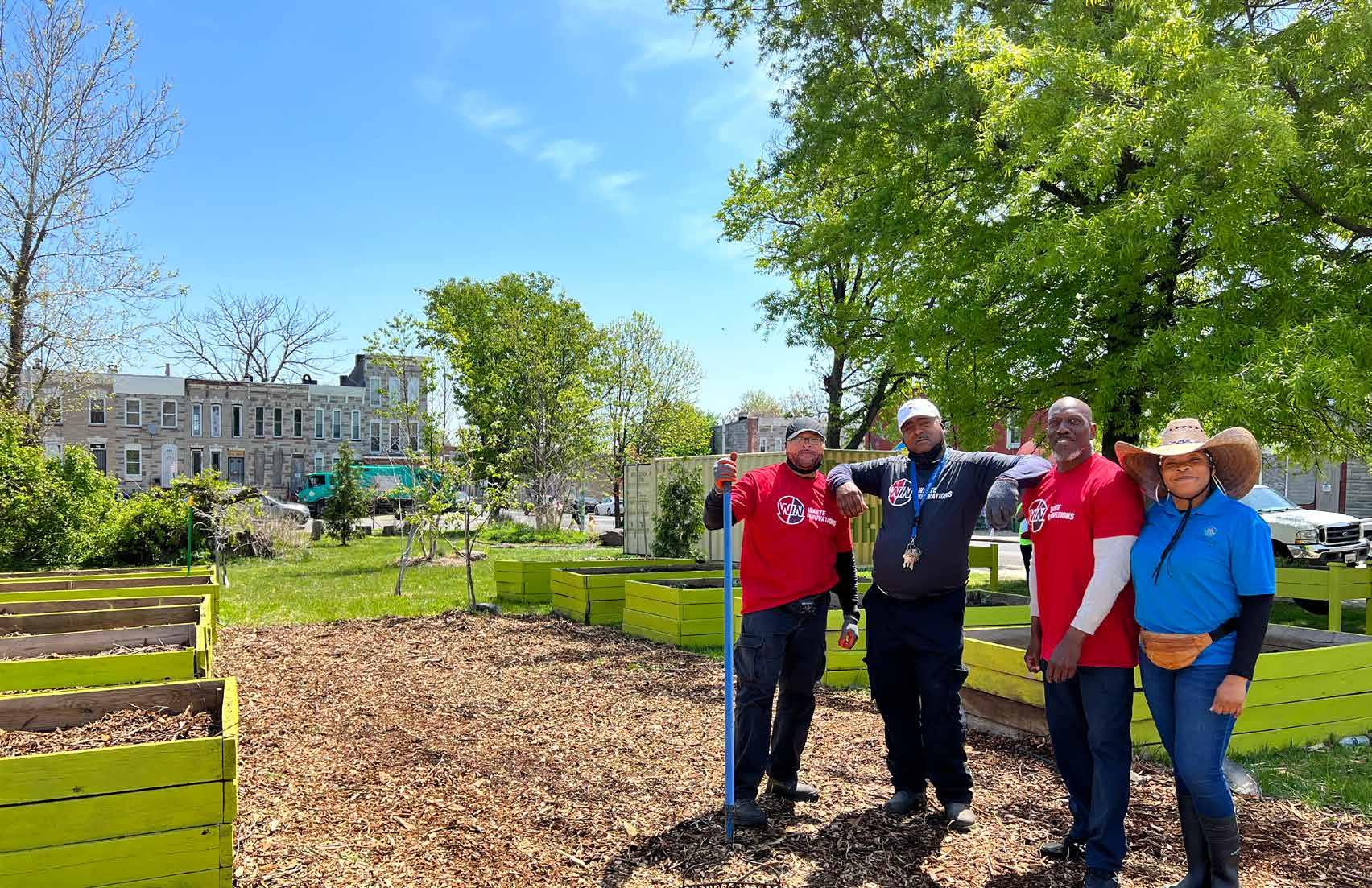

WIN Waste plays a critical role in keeping communities clean and healthy. Our employees are the foundation of services we provide; therefore, the wellbeing of our employees is our highest priority. We are proud of our industry-leading safety programs and believe the cornerstone of our company’s success has been our staunch commitment to safety.
The WIN Waste safety culture focuses on continuous improvement. Our Safety on Purpose program fosters a culture of accountability by inspiring every employee to play an active role in maintaining high safety standards so, collectively, we can ensure every team member returns home safely every day.
All WIN Waste locations and vehicles meet industry-leading safety standards and training requirements. WIN Waste contractors must be compliant with all federal, state, and local laws, regulations, rules, ordinances, and orders that apply to the work they deliver.

“ There is nothing we do that is more important than our employees’ safety.”
—Wes Salmons Vice President of Safety
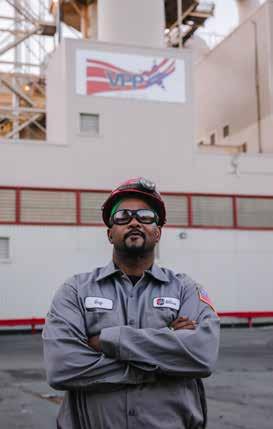
In 2022, three WIN Waste sites — Bridgeport, Connecticut, Saugus, Massachusetts, and Gloucester, New Jersey — received renewal of their VPP “Star” worksite status. The Occupational Safety and Health Administration’s designates “Star” sites through its Voluntary Protection Program (VPP). It is the highest safety rating OSHA bestows, and fewer than one percent of worksites in the United States achieve the designation.
Nine WIN Waste Innovations sites are OSHA-designated “Star” worksites.
• Baltimore, MD
• Bridgeport, CT
• Concord, NH
• Falls, NJ
• Gloucester, NJ
• Hudson Falls, NY
• Saugus, MA
• South Broward, FL
• Westchester, NY

Our WINSAFE program, set a zero safety incidents goal, and it’s already working; between 2019 and 2021, we experienced a 59% reduction in lost-time safety incidents.

Delivering the most reliable and sustainable waste and recycling solutions to our customers and community starts by working together to create an open, honest, and transparent culture where all are treated equitably and without bias. WIN Waste is developing diversity, equity, and inclusion programs because we know our success depends upon the diversity of our team.
We strive every day to be the most diverse, equitable, and inclusive workplace in our industry — a place where we act boldly as one, dynamic team to deliver essential, superior waste solutions.
WIN Waste designed its DE&I roadmap to ensure the maturity of a diverse, inclusive, and equitable culture over the next several years. The roadmap includes several components that we believe will be key to this evolution:
• measurement and accountability
• DE&I recruitment and sourcing
• employee input and feedback
• training and development
• communication
• marketing, advertising, and branding
• leveraging employee diversity
• strategic alliances and partnerships
• corporate social responsibility
• employee/customer and member experience
• supplier/vendor diversity
• employee onboarding
• DE&I council
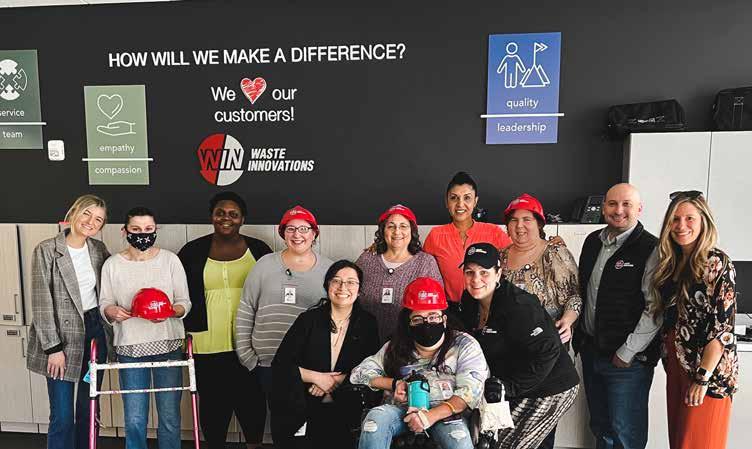
The University of New Hampshire recently honored WIN Waste with a DEI Champion designation, which recognizes dedication to social justice and equality.
At WIN Waste, we value each team member’s contributions to our success and take the time to meaningfully recognize those contributions.
We create growth opportunities by focusing on real-time feedback, performance reviews, and talent calibration to ensure we have the right people in the right positions. We take this work seriously and conduct ourselves with pride, compassion, and a sense of urgency to do the best we can for our customers, our communities, and each other.
We provide industry-leading benefits, including:
• comprehensive healthcare coverage
• prescription drug plan
• dental and vision plans
• generous paid time off and holidays
• short- and long-term disability
• flexible spending account
• company-paid life insurance
• 401(k) plan with strong company match
• tuition reimbursement
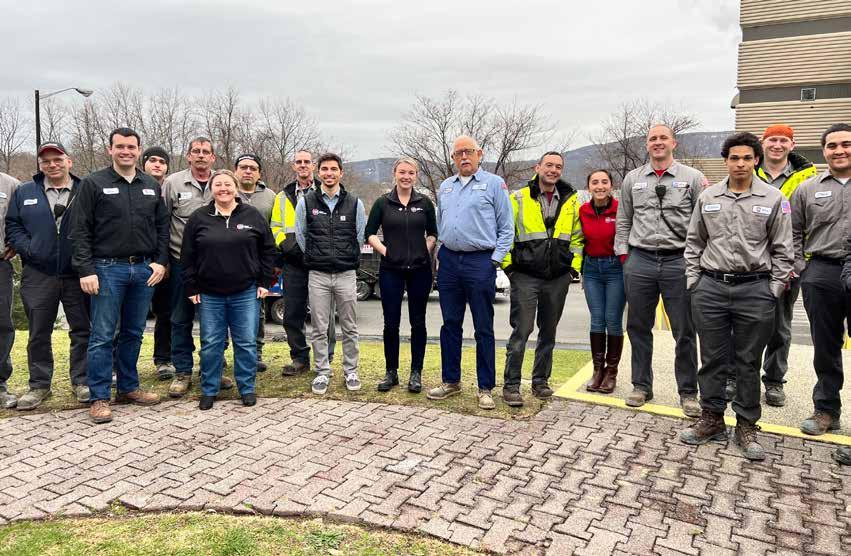
The Diversity, Equity & Inclusion Council works closely with senior leaders to integrate diversity and inclusion into WIN Waste operations and business strategy to drive accountability, share progress, and accelerate real change.
WIN Waste supports garden projects in our local communities not only for the environmental benefits of additional green spaces — and their carbon capture services — but also so students can take part in environmental stewardship and neighbors have access to fresh, locally grown produce. In urban areas, these gardens and green spaces help combat food insecurity and contribute to workforce development, oftentimes youth. After multiple seasons of WIN Waste support, some of these gardens now provide jobs for underemployed residents who sell fresh fruits and vegetables at community markets and restaurants while sustaining the gardens’ growth and longevity.
Our 16-week summer initiative to revitalize and beautify Baltimore greenspaces successfully incorporated more than 150 volunteers, 20 community organizations, and three Black-owned businesses from the communities we supported. We worked with community organizations and leaders to identify 16 lots and gardens in Baltimore in need of landscape overhaul. Then, every Saturday between June and October, a gritty and determined ground team of haulers, landscapers, and other volunteers removed litter, scaled back overgrowth, added native shrubs and flowers, and planted pollinator gardens and raised beds for fruits and vegetables.



WIN Waste recognizes that some of the industrial areas in which we operate now border communities that can be overburdened. We are committed to partnering with community leaders to develop environmental justice action plans that support and give back to these communities. While there is no one-size-fits-all solution, we want to understand each community’s unique history and needs and determine how we can be a better community partner. We contribute to local STE(A)M education and mentor programs through environmental stewardship curricula, on-site visits to our facilities, and charitable support to minimize the technology divide between affluent and low-income students. Using local, small, and often minority-owned businesses to support our community work serves a dual purpose of economically assisting our local businesses and lifting their networks, as well.

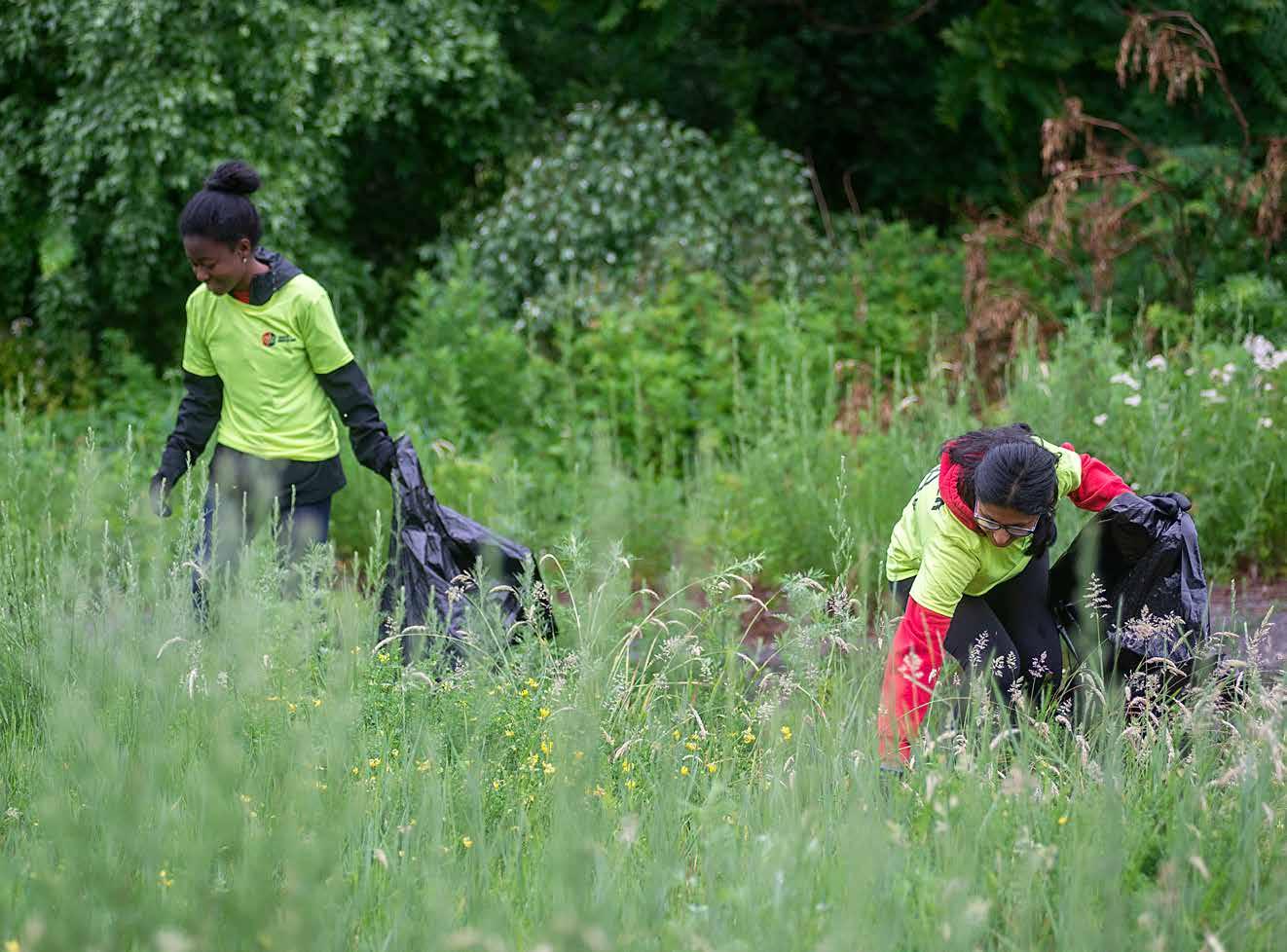
In 2022, WIN Waste hosted more than 100 events designed to have a direct positive impact on the communities we serve.

Being a sustainable company means being an excellent member of the community. WIN Waste strives to build and maintain long-lasting, trustworthy relationships in our neighboring communities by:
• investing in research to educate communities using third-party data about our health and safety performance;
• keeping communities informed about our activities, industry, and role in a more sustainable future;
• having dialogue about projects before, during, and after construction;
• committing to understand community needs and expectations and then monitoring and assisting with them;
• providing employees with opportunities to get involved in communities and make our working environment a better place;
• funding community organizations and initiatives through charitable contributions; and
• actively tracking community complaints, determining root causes, and addressing the source of complaints.
WIN Waste partners with community leaders and residents to clean and green our communities. We know our communities deserve clean, green, and beautiful shared spaces where flowers bloom, trees cover, and litter is in its proper place. In all the communities we serve, we invest in litter pickup and sustainable waste reduction initiatives to support a healthier, happier community.
In 2022, WIN Waste supported more than 250 local organizations and sponsored dozens of educational and community-building events on themes about which our company is passionate, such as waste reduction, habitat protection, biodiversity, and gardening. Salt marsh cleanup in Saugus, Massachusetts
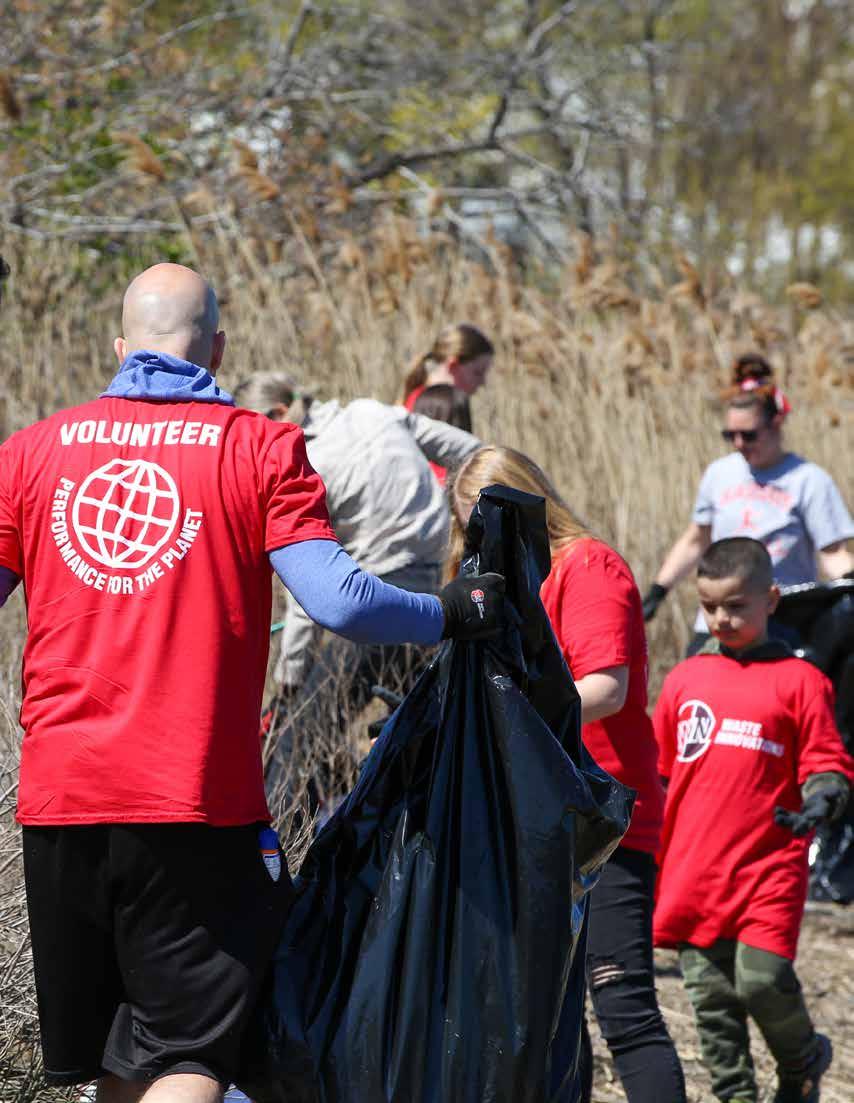
Our Saugus Nesting Box Initiative, which we manage in partnership with Saugus Public Schools, provides natural habitat for bird species that feed on nuisance and potentially harmful insects — especially mosquitoes, which can transmit diseases such as West Nile Virus. Saugus senior citizens and Lynn Vocational Technical Institute students build the boxes and Saugus Senior Center participants decorate them. Saugus High School students install the boxes.

Being a responsible steward of the environment is fundamental to WIN Waste’s commitment to perform for the planet, and our sustainable management of waste and recycling is only a part of that commitment. We engage in ecosystem restoration, biodiversity support, and environmental awareness and education in our local communities. Here are some examples of these efforts.
WIN adheres to all local, state, and federal regulations on the treatment and discharge of water from our operations and sites, including but not limited to cooling water, stormwater, groundwater, spills, leaks, and leachate. We also monitor our water consumption and strive to reduce it whenever possible.
Beyond operational resource efficiency, WIN Waste aims to reduce waste generation through our operations. We strive to manage the waste we collect in the most sustainable manner possible. By recycling and recovering precious resources from the waste stream, we reduce consumption of our planet’s limited natural resources. Our sustainable approach to end-of-life waste management includes the production of renewable energy, which helps reduce fossil fuel dependency. This supports sustainable materials management as defined by the EPA.
WIN Waste manages several wildlife sanctuaries that are certified through the Wildlife Habitat Council. The sanctuaries provide enhanced wildlife benefits and increase public access to vanishing habitats.
Pollination is a critical component of a healthy ecosystem. Without pollination, many plants cannot grow effectively or produce the food needed to meet regional and global demand. Healthy plants also help purify water and sequester carbon. Certain species play a critical role in pollination, including birds, bees, butterflies, moths, beetles, and small mammals. WIN Waste manages programs to foster and boost the populations of such species to help pollination happen. We have more than 20 beehives at our Shrewsbury, Putnam, and Saugus, Massachusetts, monofills, and our wildlife sanctuaries produce two harvests of honey annually. Our two pollination gardens help foster local butterfly populations.
WIN Waste is a founding member of the Salt Marsh Adaptation & Resiliency Teams (SMARTeams) initiative, a U.S. Fish and Wildlife Service collaboration that helps preserve salt marsh ecosystems on the East Coast.
Salt marshes are critical ecosystems that help preserve biodiversity and are home to several keystone species. What’s more, salt marshes store and sequester blue carbon, the atmospheric carbon captured and stored by the ocean in various ecosystems and organisms. Salt marsh plants can sequester blue carbon in their roots for long periods — often thousands of years or more — which means less carbon entering the atmosphere. In fact, compared to forests, salt marshes have a 10 times greater capacity to absorb and store carbon.
Salt marshes also help filter pollutants and excess nutrients, and they buffer against erosion and flooding. They are nursery habitat for fisheries and serve as a bountiful stopover for migratory birds.
But salt marshes are in trouble. Colonial-era agricultural practices combined with modern development and rising sea levels have eroded them, reducing their ability to provide these critical ecosystems services.
The SMARTeams initiative aims to mitigate the erosion and degradation of salt marshes and restore them to their fullest potential.
Find out more about how salt marshes work and why their preservation is so critical in the UMass report “How a Massachusetts Salt Marsh Is Changing What We Know About New England’s Coast.” winwins.co/UMassReport
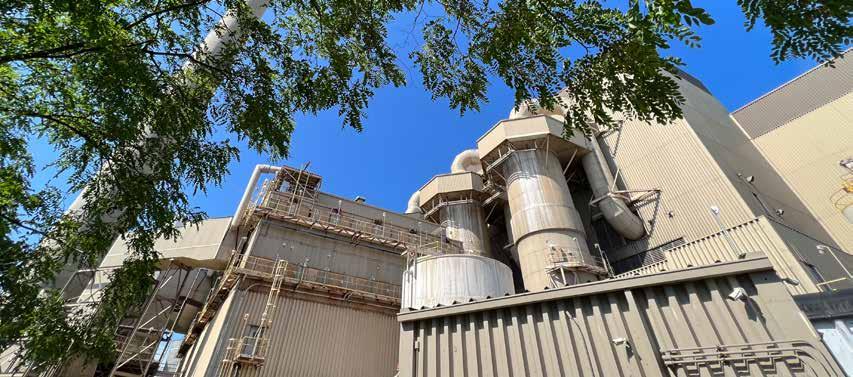
WIN Waste recognizes that addressing climate change is a global priority that requires mobilization of resources at all levels as well as cooperation with stakeholders in the private and public policy sectors globally.
WIN Waste’s diverse responsible waste management solutions portfolio focuses on recovering as many renewable attributes from the waste stream as possible to support a sustainable materials strategy. We also use railways to transport freight. Rail is more fuel-efficient, it prevents damage to highway infrastructure, it reduces air pollution, and it produces 75% fewer greenhouse gas emissions than trucks on the road.
In addition to our sustainable service offerings, we want to reduce our own environmental impact. We have committed to identify and measure Scope 1 & 2 greenhouse gas emissions.
Emission sources
- Waste processing
- Fuel consumption
- Fugitive emissions
- Electricity consumption
Emission avoidance
+ Recycling
+ Landfill diversion
+ Green energy generation
+ Vehicle mile reduction
+ Low-carbon rail



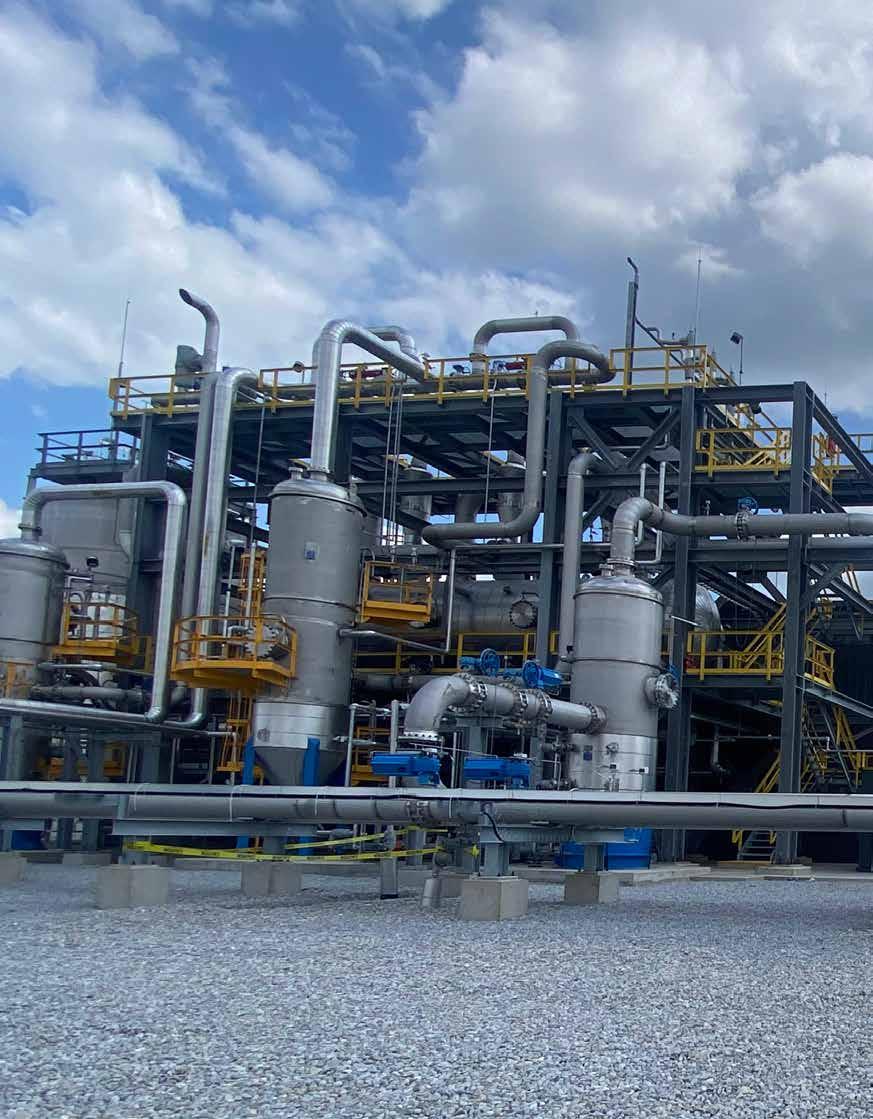
The advanced gas treatment system at our Seneca County Landfill reduces the hydrogen sulfide concentration in landfill gas by 98 percent, thereby dramatically reducing sulfur dioxide emissions.

WIN Waste has a long history of delivering innovative solutions for the benefit of people and the planet. We continue to harness this legacy as we build and evolve our sustainability roadmap. Our dedicated team stays on top of emerging technologies to help us continually reduce our own footprint and those of our customers. Over the last two years, WIN Waste has invested $100 million in sulfur-removal technology at our landfills and $48 million in state-of-the-art air pollution controls and water consumption upgrades at our renewable facilities. These improvements are already making our operations more efficient and sustainable.
Below are some of the new projects we are working on today to bring ever more efficient and environmentally friendly operations in the future. We look forward to sharing our progress and results in our next sustainability report.
Our waste handling process results in a small amount of non-volatile ash residue. We are working with the University of Florida to study the possibility of using this ash as an ingredient in road base. If feasible, our ash could serve as a building block for new and improved roadways and a more sustainable transportation infrastructure.
We are exploring the use of solar energy to meet our transfer stations’ energy needs. Using solar to power our operations would reduce the number of watts we draw from the power grid.
We are actively developing infrastructure to convert the methane gas we capture at our landfills into renewable natural gas that can power vehicles and/or create electricity.
WIN Waste is an ardent supporter of the Environmental Research & Education Foundation (EREF), which works to advance scientific research and education that will bring innovation in sustainable waste handling practices. In addition to financial support, WIN Waste’s CEO and Board Chairman both serve on EREF’s Board of Directors, and our Senior Director of Sustainability and Vice President of Engineering serve on EREF committees. erefdn.org
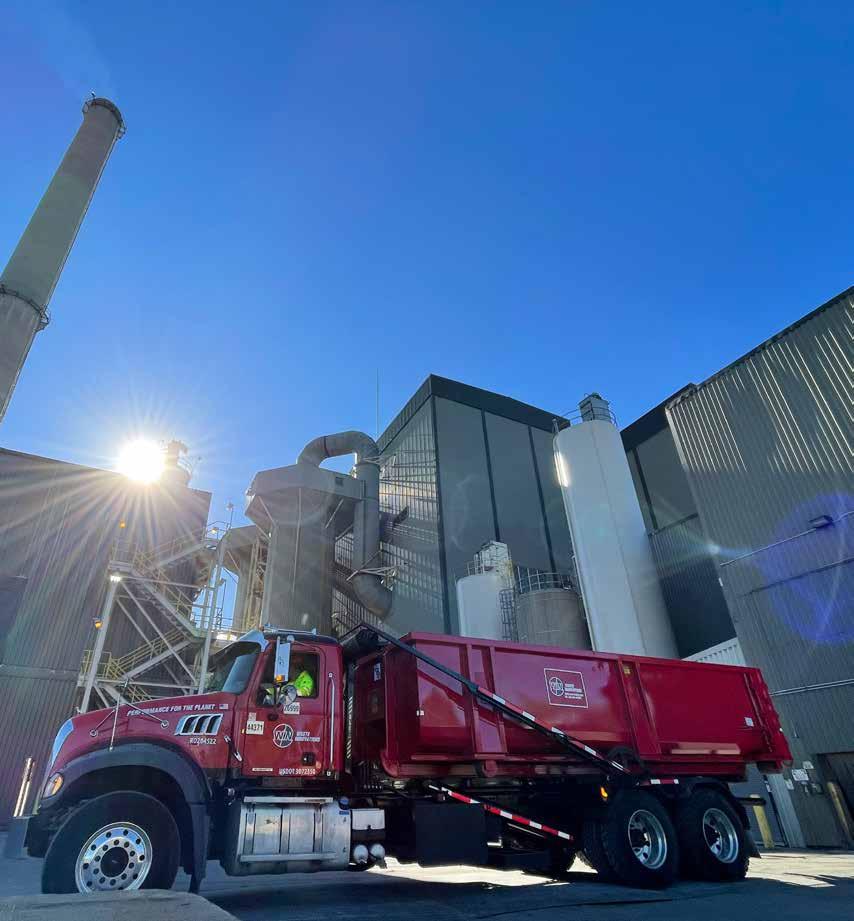
Being a sustainable company means operating in a way that behooves a broad range of stakeholders — not only our customers and investors but also the communities in which we operate, our planet, and our employees. Here is a snapshot of the gains we made in these areas during 2022.
WIN Waste participates in an independent sustainability assessment to measure and track performance improvement in environmental, social, and governance (ESG) practices.
The Global ESG Benchmark for Real Assets (, aka GRESB,) is an internationally recognized and globally adopted sustainability benchmarking tool for infrastructure that measures sustainability performance through an annual assessment consisting of more than 140 questions and data points. GRESB evaluates both the management of sustainability framework, such as leadership, policies, reporting, risk, management, and stakeholder engagement, as well as company-specific performance, such as energy, air pollution, GHG emissions, waste, biodiversity and habitat, health and safety, employee relations, and customer management.
WIN Waste has a 4-star rating (out of 5) and is ranked in the top five companies globally for sustainability performance within our sector: environmental services — waste treatment.

109K SERVICES DELIVERED TO CUSTOMERS
11M+ TONS OF WASTE MANAGED
6.4M TONS CONVERTED INTO RENEWABLE ENERGY
133,350 TONS OF METALS RECYCLED
72,517 TONS OF CARDBOARD RECYCLED
23,673 TONS OF MIXED PAPER RECYCLED
4,855 TONS OF GLASS RECYCLED
930 TONS OF ALUMINUM RECYCLED
3,295 TONS OF PLASTICS RECYCLED
115.5K TONS OF WOOD AND CONCRETE RECYCLED
RENEWABLE ENERGY
3.2M MEGAWATTS
GENERATED (EQUIVALENT TO 340,000 HOMES POWERED) THE EQUIVALENT OF AVOIDING
6M BARRELS OF OIL
1.7M TONS OF COAL
418M CUBIC FEET OF NATURAL GAS
OF LITTER REMOVED FROM NEIGHBORHOOD STREETS, PARKS, AND GREENSPACES
150+ EVENTS
SUPPORTED IN OUR COMMUNITIES
1,000+ VOLUNTEERS
WHO CONTRIBUTED A COMBINED 10,000+ HOURS
250+ PARNTERSHIPS WITH COMMUNITY ORGANIZATIONS
MILLIONS CONTRIBUTED IN COMMUNITY PARTNERSHIP ACTIVATION ACROSS OUR FOOTPRINT
CHAIRMAN’S AWARD FOR OUTSTANDING PARTNERSHIP
WILDLIFE HABITAT COUNCIL recognizing our protection and management of the Bear Creek Wildlife Sanctuary in Saugus, Massachusetts
WILDLIFE HABITAT COUNCIL ACCREDITATION
WILDLIFE HABITAT COUNCIL
“DEI RISING CHAMPION” AWARD
UNIVERSITY OF NEW HAMPSHIRE for our work on social justice and equality.
MAKING OPPORTUNITIES MORE ACCESSIBLE
THE STATE OF NEW HAMPSHIRE VOCATIONAL REHABILITATION PROGRAM FOR INDIVIDUALS WITH DISABILITIES
DEDICATION TO BUILDING COMMUNITIES IN BALTIMORE CITY CITY COUNCIL OF BALTIMORE, MARYLAND
TWO “40 UNDER 40” AWARDS WASTE360
#18 “50 BEST COMPANIES TO SELL FOR” SELLING POWER
